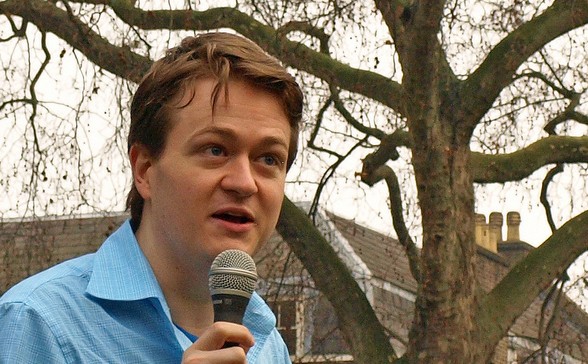Independent columnist and interviewer Johann Hari has come under fire over the past week for so-called copy and paste journalism.
First the DSG blog pointed out the remarkable similarities between Hari’s 2004 interview with Tony Negri and Negri’s own 2003 book, Negri on Negri. Then Brian Whelan, an editor at Yahoo! Ireland, did a little more digging around and unearthed more similarities. Whelan took a close look at Hari’s interview with Gideon Levy, published in the Independent last year, and found that chunks of it had been lifted from both Levy’s own writing and interviews he gave to other journalists.
It’s important to note the copied passages are not cited as quotes from their original source, which would be perfectly acceptable, but rather passed off as having been said in Hari’s own interview, complete with such dramatic additions as: “With a shake of the head, he says…” and “After saying this, he falls silent, and we stare at each other for a while. Then he says, in a quieter voice…”
What is perhaps more surprising than the evidence that the Independent’s star interviewer has been lifting quotes from elsewhere to neaten up his work, is a blog post from Hari last night defending the practice.
The post, titled “interview etiquette”, explains that he occasionally replaces quotes from an interview with quotes from elsewhere in which the subject has better expressed the same idea.
So occasionally, at the point in the interview where the subject has expressed an idea, I’ve quoted the idea as they expressed it in writing, rather than how they expressed it in speech. It’s a way of making sure the reader understands the point that (say) Gideon Levy wants to make as clearly as possible, while retaining the directness of the interview. Since my interviews are intellectual portraits that I hope explain how a person thinks, it seemed the most thorough way of doing it.
Hari claims to be bemused that a blogger considers this plagiarism, and says that he has called round “a few other interviewers for British newspapers” who told him that they do the same thing from time to time.
But Hari’s defence that he would expect somebody interviewing him about Martin Amis to replace something like: “Um, I think, you know, he got the figures for, uh, how many Muslims there are in Europe upside down” with something he’d written “more cogently about him a month before” is disingenuous. No journalist is expected to quote so verbatim as to include ums, uhs, and you knows. Features would be a complete mess. But they should, without doubt, be expected to not pass off other material as having been said in their interview.
Hari’s simplistic take on the practice is also disingenuous, and I suspect he knows it. There are all sorts of problems associated with this kind of fudging, not least the question of whether his subjects can be confident of having any control over an interview, or whether his editors and readers will be able to trust what they get given. And once misrepresenting what was said a little bit, where do you stop?
It should be acknowledged that all journalists pick and choose quotes from an interview as they see fit, eschewing thousands of words for a few quotes sometimes, and this can carry with it its own forms of misrepresentation. There is a fine, but important line, however, between that and falsifying what was said in an interview.
Hari finishes his post by saying that he is “open to suggestions from anyone who thinks there’s a better way of doing this”.
I have one: ask the right questions, get the answers you are looking for if possible, or if not work with what you’ve got. If your subject has expressed an idea more cogently elsewhere, point your readers in that direction and let them decide for themselves. If they um and ar, cut out the umms and arrs. No one is going to write an accusatory blog post about you doing that.
Hari’s actions aren’t a far cry from the recent case of Brian Walski, who was fired from his job as a staff photographer on the LA Times for filing a composite image. There were few objections to Walski’s sacking, and none from the man himself who issued a contrite apology. Alterations and composites are unacceptable in professional photojournalism, why should it be any different with the written word?
Image by internets_dairy on Flickr. Some rights reserved.
